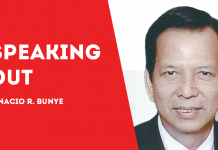
[av_one_full first min_height=” vertical_alignment=” space=” custom_margin=” margin=’0px’ padding=’0px’ border=” border_color=” radius=’0px’ background_color=” src=” background_position=’top left’ background_repeat=’no-repeat’ animation=”]
[av_heading heading=’Corruption perception’ tag=’h3′ style=’blockquote modern-quote’ size=’30’ subheading_active=’subheading_below’ subheading_size=’18’ padding=’10’ color=” custom_font=” av-medium-font-size-title=” av-small-font-size-title=” av-mini-font-size-title=” av-medium-font-size=” av-small-font-size=” av-mini-font-size=” admin_preview_bg=”]
BY NEIL HONEYMAN
[/av_heading]
[av_textblock size=” font_color=” color=” av-medium-font-size=” av-small-font-size=” av-mini-font-size=” admin_preview_bg=”]
Tuesday, February 27, 2018
[/av_textblock]
[av_textblock size=’18’ font_color=” color=” av-medium-font-size=” av-small-font-size=” av-mini-font-size=” admin_preview_bg=”]
BERLIN-based Transparency International published its Corruption Perception Index 2017 last week. This annual league table shows how countries are faring with each other and also how they are doing in terms of absolute levels of corruption.
We should be aware that the league table is not derived from a “snapshot” of corruption perception levels on Dec. 31, 2017. In fact, the results are obtained from 12 surveys conducted between December 2015 and September 2017.
Trends and variations of league table positions are of interest. The Philippines has experienced considerable fluctuations over the past decade. The low point occurred at the latter stages of President Gloria Arroyo’s term when we ranked 134th. Then there was a steady improvement during the first half of President Benigno Aquino III’s administration where we eventually reached 84th. An improvement of 50 countries is indeed an achievement. From the second half of President Aquino’s term until now there has been some slippage so that we are currently ranked 111th. Since there are 180 countries surveyed, the Philippines ranks in the third quartile.
Not good but not outrageously bad.
I am pleased that President Rodrigo Duterte’s administration is taking the report seriously and calls on people to fight corruption. Presidential spokesman Harry Roque confirms that President Duterte has warned public officials that he would not tolerate corruption. The creation of a presidential Anti-Corruption Commission and the opening of a complaint hotline should help. We need progress reports to ascertain the effectiveness of these initiatives.
If we are being called upon to fight corruption, then we need government instrumentalities that respond positively to the information we provide.
***
I am glad that the Department of Energy (DoE) will review existing power supply contracts. Good. If this means that Energy Secretary Alfonso G. Cusi is sidelining the Energy Regulatory Commission (ERC), then I am all for it.
The most expensive electricity in the Philippines is marketed by Panay Electric Company and Central Negros Electric Cooperative (Ceneco).
Ceneco’s February charge is P11.50 per kilowatt hour – an all-time record. This causes hardship to many and pushes some into poverty. The excessive price is due to disadvantageous bilateral agreements signed since 2007. Assistant Energy Secretary Redentor E. Delola mentions that his department will monitor existing power supply agreements.
“We can ask the ERC to review the contracts,” he said.
Not a good idea. One of the reasons for our excessively expensive electricity is allegedly due to manifest corruption within ERC. We need an independent body to find out why so many demonstrably disadvantageous contracts have been negotiated with electricity suppliers.
But electricity is not the only arena where corruption has affected all of us.
***
Understanding the psychological aspects of corruption is vital. Corruption flourishes when there are those who have a sense of superiority over the rest of us. We see this with the deplorable conditions under which citizens have to cope with in order to obtain the most basic of services. Queue lengths are excessive. This can only occur when there is a fundamental lack of respect towards those who have to line up. This, regrettably, is a fertile ground for low-level corruption opportunities.
Corruption lessens in more egalitarian societies.
We have a long way to go./PN
[/av_textblock]
[/av_one_full]







